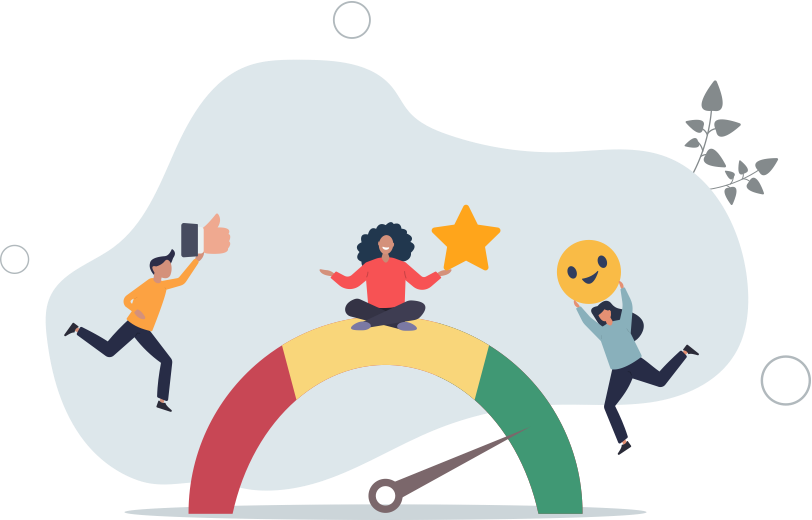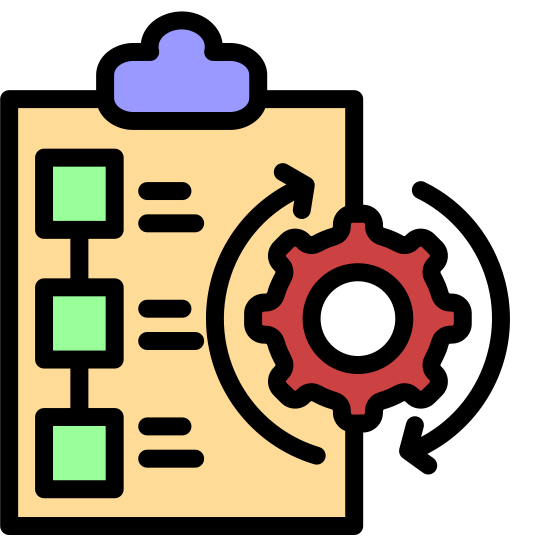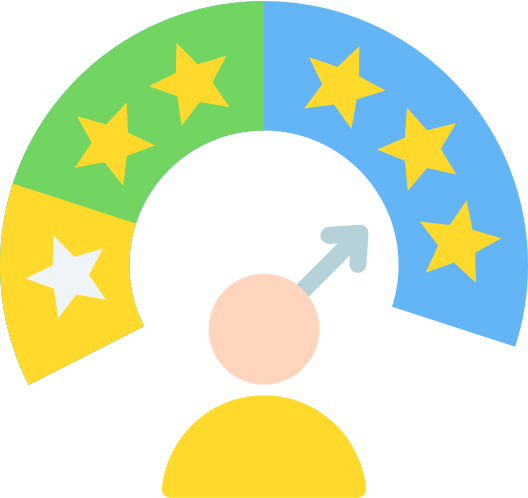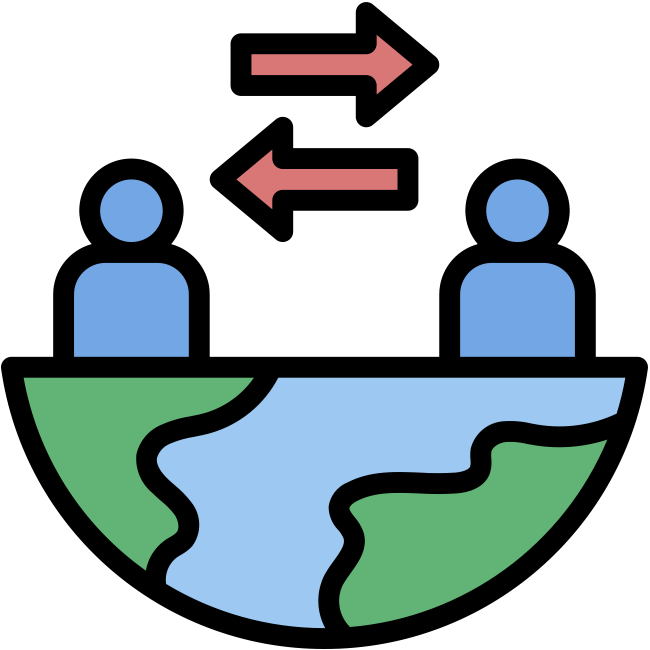Your business exists because of your customers
Balance commitments without missing what's vital.
I have been writing blogs based on a chapter in my recent book The 'Benefit' Blueprint for Startup Success. It is about 25 questions every entrepreneur must ask themselves.
This blog brings me to the 16th question. If you want to dive deeper into other questions, please subscribe to my blog.
Now to question #16:
How will I balance commitments while ensuring a consistent customer experience? When the time pressure is high, and the deadlines are tight we often lose the objectivity of why we are in the business in the first place. We forget our commitment towards meaningful customer experience centred around benefits we ought to deliver.
Founding, growing, and scaling a startup - customer experience is everything. It doesn't matter if your product is innovative or the same; but different, it is irrelevant how strong your technology, is or how ambitious your vision is, you are only in business because of your customers.
When time pressure becomes higher and deadlines tighter, it’s easy to lose sight of this reality.
Instead of ensuring meaningful customer experiences, I have seen founders often getting caught up in urgent tasks, operational chaos, and endless demands. The key question is:
How do you balance commitments while ensuring a seamless, consistent customer experience?
The answer lies in rethinking work itself—shifting from the outdated models of time-based productivity to a new paradigm of commitment-driven business structures.
The Myth of Work-Life Balance
For years, businesses have structured themselves around the illusion of work-life balance, assuming that time should be neatly divided between work and personal life. This idea stems from:
Frederick Taylor's scientific management/Functional Foremanship theories, measured productivity based on time and efficiency per worker. Look around intellectuals still are being paid by hour, week, or month when we know that the randomly firing neurons in two separate craniums are not alike.
Keynesian economics, while revolutionary in its time, struggles to address the transformative impact of current day’s knowledge economies, artificial intelligence, and automation on modern economies. In a world where AI and machine learning are rapidly displacing traditional labor markets, the model's focus on aggregate demand and employment as primary levers of economic growth becomes increasingly inadequate. A new framework must account for the rise of job displacement, the gig economy, universal basic income (UBI), and the need for reskilling, while also addressing the concentration of wealth in tech-driven monopolies and the ethical implications of AI-driven productivity gains.
While these old theories are being obliterated we need to challenge primitive thinking in startups as well:
“We don’t balance time—we balance commitments.”
The future of startups isn’t about managing hours worked but about managing the right commitments at the right time.
With the rise of AI, automation, and new business models, the world is shifting towards lean, high-efficiency startups, where:
✅ Fewer people do more meaningful work.
✅ Commitment replaces the need for rigid schedules.
✅ AI-powered automation removes repetitive tasks, allowing founders to focus on customers.
Workforce-Based Models vs. Commitment-Based Models
Traditionally, businesses have measured growth through headcount (and still do)—more employees meant higher output. But startups today don’t need large workforces to scale.
📌 Old Model: Workforce-driven growth (more employees = more productivity).
📌 New Model: Commitment-driven growth (automation + strategic execution).
🔹 A McKinsey study predicts that 49% of work activities could be automated by current technology (source).
🔹 Stripe, Notion, and Basecamp are examples of highly profitable companies with small, remote-first teams.
This shift is about focusing time and energy on what truly matters: delivering customer value.
Balancing Commitments Keeping Customer Experience at the Centre
1. Prioritise Commitments, Not Hours Worked
The traditional mindset equated long hours with productivity. The modern startup mindset understands that commitments—not time spent—drive value.
“You don’t get paid by the hour. You get paid for the value you bring to the hour.” – Jim Rohn
Can you reframe your daily goals from time-based (“I will work 8 hours”) to commitment-based (“I will complete three high-impact tasks”)?
2. Automate Repetitive Tasks while keeping the human touch
AI is not replacing human empathy—it’s replacing repetitive work so humans can focus on higher-value activities.
“AI will replace tasks, not people. Those who learn to leverage AI will replace those who don’t.” – Naval Ravikant
You can use chatbots for customer queries but keep human oversight for high-value interactions (e.g., Drift, Intercom, or Zendesk).
You can automate marketing workflows while keeping personalised engagement for customer relationships.
3. Implement Systems for Consistent Customer Experience
Customers expect predictability, reliability, and seamless interactions. Without systems, startups become reactive instead of proactive. This is to action when you are out of the MVP / PoC stage.
Build process-driven playbooks for onboarding, support, and retention.
Example: Stripe automated customer service workflows while keeping high-touch support available where needed.
"Consistency beats intensity. Show up, deliver, and build trust over time." – James Clear, Atomic Habits
4. Use On-Demand, Distributed Talent Instead of Full-Time Staff
Instead of hiring full-time employees for every function, startups can now access specialised talent globally, on demand.
📌 Traditional Model: Build large in-house teams for every role.
📌 New Model: Leverage freelancers, fractional executives, and contractors to stay agile.
Use Toptal, Upwork, or Deel to access world-class talent without long-term overheads.
Hire on-demand specialists to solve specific problems instead of expanding payroll.
“Leverage is the key to wealth. In the modern world, labour is the least scalable form of leverage.” – Naval Ravikant
5. Build Intellectual Assets Instead of Growing Workforce
Successful startups no longer measure growth by employee count. Instead, they focus on building intellectual property, automated systems, and unique customer insights.
Capture data-driven insights to continuously improve customer experience.
Build scalable automation that increases efficiency without workforce expansion.
"The greatest companies don’t just build products; they build monopolies on knowledge." – Peter Thiel, Zero to One
You’re in Business Because of Your Customers—Make Them Your Priority
Startups win because they have the clearest focus on delivering customer benefits.
🔹 Reframe work-life balance as commitment balance—not time compartmentalisation.
🔹 Leverage AI and automation to scale customer benefits without workforce expansion.
🔹 Use systems and fractional talent to maintain customer experience without high costs.
🔹 Think in terms of intellectual property, automation, and customer relationships—not headcount growth.
If you’re in business, it’s because of your customers. Keep them at the centre of everything you do.
"The startups that thrive in the next decade will be those that balance automation and human experience seamlessly."
Further Reading & Deep Dive
The Almanack of Naval Ravikant – Eric Jorgenson (Amazon link)
Atomic Habits – James Clear (Amazon link)
Zero to One – Peter Thiel (Amazon link)
AI Superpowers – Kai-Fu Lee (Amazon link)
Recently, I have been writing blogs about 25 questions every entrepreneur must ask themselves. These are based on my book The 'Benefit' Blueprint for Startup Success.
© Sameer Babbar
If you would like my ideas mailed to your Inbox first please also join me on my Substack
Disclaimer: This is for information only. It does not consider your objectives, financial situation, or needs. The author, his company, his associates, his directors, his staff, his consultants, and his advisors do not accept liability for any loss or damage, including, without limitation, any loss that may arise directly or indirectly from the use of or reliance on the information provided










